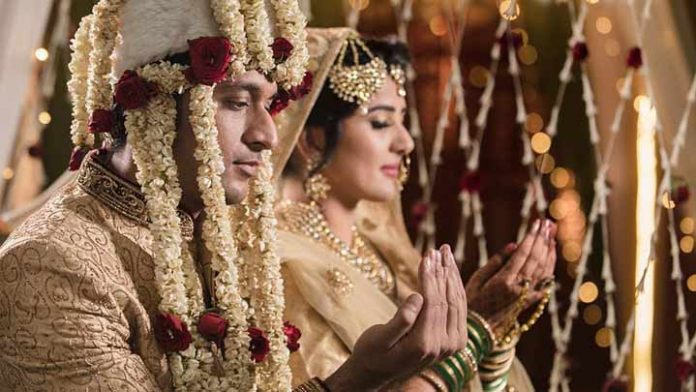This article is written by Ifra Jan who is a spokesperson of the J&K National Conference and Omer Ghazi who is a research associate at the Citizens’ Foundation for Policy Solutions (CFPS), a public policy think tank based in New Delhi.
This article has been published by Sneha Mahawar.
Table of Contents
Introduction
The Supreme Court striking down unilateral and arbitrary triple talaq, a practice that left women vulnerable, was celebrated as a victory for gender equality in large sections of the Indian society and rightly so as per the authors. Indeed, some Muslim women were the ones who took this matter to the Apex Court, and progressive Muslim men had supported the abrogation of this retrograde practice, as you can see here, here, here, and here. The Supreme Court acknowledged that the practice violated not only Article 14 of the Indian Constitution upholding gender equality but also the tenets of the Quran. Triple talaq, as per the Quran, can be offered over a period of 90 days and that too only after following certain steps laid out in the Quran which include counselling, sleeping separately, citing previous examples of divorce and arbitration by a panel of family members with equal representation from the husband’s side and the wife’s side, as enunciated in verses 4:34 and 4:35. It is true that verses 4:34 and 4:35 of the Quran do not explicitly mention their mandate in the context of divorce. That said since talaq is from the husband’s side (unlike khaula, which is from the wife’s side), the steps are given in verses 4:34 and 4:35 become relevant, and the supposed reference to wife-beating in verse 4:34 is taken by many to be a mistranslation, as discussed here and here. Besides, since verses 65:1-6 of the Quran in the context of divorce clearly oppose ruthless desertion of one’s wife and verse 2:229 talks of reasonable settlement with the woman, there is genuine compatibility with verse 4:35.
Since this bold initiative was taken by some Muslim women to claim their equal rights as Indian citizens in accordance with Article 14 of our Constitution, other sexist practices among Muslims have also been challenged (we will touch upon other religious groupings in India subsequently), and one of them, Nikah Halala, is the subject of this article.
What is Nikah Halala and is it mandated by the Quran or Quotations of Prophet Muhammad (Peace Be Upon Him)
As per verse 2:230 in the Quran, a woman can reunite with her husband on being divorced twice but on the third occasion, she cannot reunite with her husband except after undergoing a marriage with another man and him passing away or entering into a divorce with her. The rationale behind this idea has been explained by writer Ziya us Salam in the following words-
“This verse has to be seen against the backdrop of the atmosphere then prevalent in the Arab world. Many men were prone to divorcing their women, then taking them back, and divorcing them again. It had become a game. This process went on innumerable times. The Quran put a limit to this: a man could only divorce his wife two times. If he did so for the third time, he could not have her back, and she was free to marry any man she chose.”
However, this concept has been perverted and distorted by many Muslim clerics to contend that women seeking to reunite with their husbands can have temporary marriages or practically, paid one-night stands (as also exposed by several media houses, as you can see here in the Indian Muslim context and here in the context of South Asian-origin Muslim communities in England), and then get divorced from their new ‘husbands’ to reunite with their earlier ones (thus supposedly making the original marriage halal or valid again, and the temporary marriage for doing so, therefore, described as nikah halala, a term nowhere found in the Quran), which is clearly violative of women’s dignity and disgraceful for a 21st century society. In fact, Prophet Muhammad (Peace Be Upon Him) had clearly prohibited such an idea, in the following words-
“Curse be upon the one who marries a divorced woman with the intention of making her lawful for her former husband and upon the one for whom she is made lawful.”
(Abu Dawud, Book 005, Hadith Number 2071, narrated by Ali Ibn Abu Talib)
Views on Nikah Halala
- As a Muslim commentator, Safiyat Naseem seeking to uphold the spirit of the Quran and Hadiths puts it–
“The unsavoury practice of halala is a dark manifestation of toxic male entitlement and perpetuation of patriarchal ethos where women are considered second-class citizens.”
- Two other such Muslim commentators, Sadaf Ayub Chaudhary and Iqra Saif Agha have argued–
“Unquestionably, the practice of halala also takes away the freedom of choice from the women and reduces their existence to merely being an object that is owned by one man and then the other. The deserted wife’s feelings, as well as consent, are totally disregarded as to whether or not she actually wants to marry another person, consummate the marriage and then remarry the previous husband. The woman’s sentiments are drowned by the attempts to gratify the needs of the men she gets married to or to save the ‘izzat’ of the family. This just goes on to show how easy it is for men to manipulate the law according to their own needs and dictate what women ought to do and rectify the situations, by sacrificing their dignity, caused by the men themselves.”
- Describing nikah halala as a practice “invented by sexual perverts”, commentator Aslam Abdullah says–
“How religious and dedicated these holy men are to God who would not mind sleeping with the wife of someone else who wrongfully uttered the most dreaded words in the Muslim family system and how caring they are to divest their holy energy in keeping the spirit of the faith alive?
Even though the Prophet described those who perform halala and enforce it the worst of human beings, yet the practice is performed in the name of God by those who claim to follow the Qur’an and the messenger who introduced them to the Qur’an.
It is an inhumane practice and has nothing to do with divine guidance. It is barbaric and rooted in ideas that treat women as nothing but as an object of sexual pleasure. The persistence of this practice in Muslim society speaks of the corruption that is prevalent in religious circles.
Halala is non-Islamic and it should never be associated with the divine guidance because it is the antithesis of human decency and divine grace.”
- Several Muslim clerics have also opposed this abhorrent practice. “This is lust. It’s not permissible in Islam. This is a criminal offence committed in the name of religion,” says Maulana Maqsood-ul-Hasan Qasmi, the head of the Imam Council of India. “These people should be thrown out of the mosques. They should be booked.” Maulana Ansar Raza of the Gharib Nawaz Foundation called for the immediate ex-communication of religious scholars offering themselves for nikah halala. “They should be (…) thrown out of mosques. They should be charged with rape. Nikah halala is a regressive un-Islamic practice,” he said.
- Businessman Zafar Sareshwala, who has chancellor of the Maulana Azad National Urdu University (MANUU), Hyderabad, has a similar view. “These people should be put in jail and charged with rape,” he said, demanding strong action against men participating in nikah halala for one-night stands.
- In England, the Islamic Sharia Council in East London, which regularly advises women on issues around divorce, strongly condemns halala marriages. “This is a sham marriage, it is about making money and abusing vulnerable people,” says Khola Hasan from the organisation. “It’s haram, it’s forbidden. There’s no stronger word I can use. There are other options, like getting help or counselling. We would not allow anyone to go through with that. You do not need halala, no matter what,” she adds.
The practice is sought to be legally prevented even in Pakistan, though it still persists, with even the courts unfortunately not always rejecting it outright. However, the All India Muslim Personal Law Board (AIMPLB), a largely regressive organisation that seeks to act as a self-appointed custodian of matters pertaining to Indian Muslims (though vehemently rejected by very many Indian Muslims), has opposed the banning of nikah halala (a practice violating the letter of the Quran and Hadiths, even if they don’t very well understand Indian constitutional law or international human rights law) in India, though even it has conceded that the practice should be discouraged. Without seeking to diagnose the surrounding politics, the authors would also say that it is only appropriate that the central government has sought to support its abolition in the Supreme Court.
Conclusion
The argument that blatantly sexist practices in the realm of family law violating the rights of Indian women under the Constitution should be allowed to continue till the patriarchal elements of a community agree to disown them is neither legally valid nor fair to the victims of such practices. The authors indeed wholeheartedly express solidarity with liberal and moderate Muslims, especially Muslim women, facing threats (as you can see here, here, here, and here) and even actual atrocities, while combating such social evils.
Equally, and in fact, in the same spirit, the authors would emphasise that such practices should not be invoked for communal polarisation to stigmatise Muslims or even practising Muslims, very many of whom outright reject such practices as un-Islamic and inconsistent with human rights. Indeed, there have been and still are issues with the personal laws of other religions as well, as you can see here, here, here, here, here, and here.
The authors earnestly support efforts in the direction of all religions being interpreted in consistency with the values enshrined in the Universal Declaration of Human Rights (UDHR), including no violence against people for their peacefully held religious or non-religious views, and women get their equal space under the sun in India and elsewhere globally.
References
- https://www.sundayguardianlive.com/opinion/3009-muslims-must-not-justify-triple-talaq-polygamy?fbclid=IwAR2qPvgFfD058sM8pN7UK4kYPib-SN3UlVazmRHkqUr0gQC0_2A5CI1kba0
- http://newageislam.com/islam,-women-and-feminism/arif-mohammad-khan/triple-talaq-is-an-enormity;-it-is-a-legacy-of-a-pre-islamic-arabia/d/111431
- https://www.islamicity.org/11451/quran-strikes-out-wife-beating/?fbclid=IwAR3i7mioN849qFPEUWtQ7lAFww6aGRsPxrkEORCgW9NfYbF11VqvZVTXrog
- https://www.nytimes.com/2007/03/25/world/americas/25iht-koran.4.5017346.html?fbclid=IwAR3qHr4IvIaarTRdzwEVdokIYNEKSiNF0NneS4nBfscGhYqr0xyU1mbgdFs
- https://scroll.in/article/876245/as-the-supreme-court-considers-banning-nikah-halala-a-look-at-the-contentious-form-of-marriage
Students of Lawsikho courses regularly produce writing assignments and work on practical exercises as a part of their coursework and develop themselves in real-life practical skills.
LawSikho has created a telegram group for exchanging legal knowledge, referrals, and various opportunities. You can click on this link and join:
Follow us on Instagram and subscribe to our YouTube channel for more amazing legal content.
 Serato DJ Crack 2025Serato DJ PRO Crack
Serato DJ Crack 2025Serato DJ PRO Crack











 Allow notifications
Allow notifications


